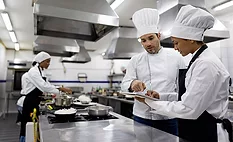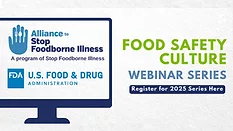
Culture
Food safety culture is an essential, measurable, and sometimes regulated tool for managing food safety in an organizational context. It encompasses accepted behaviors, habits, values, norms, history, and expectations for the myriad ways in which food companies ensure safe food production for consumers.
Articles
More ArticlesPodcasts
More PodcastsNever miss the latest news and trends driving the food safety industry
eNewsletter | Website | eMagazine
JOIN TODAY!Copyright ©2025. All Rights Reserved BNP Media.
Design, CMS, Hosting & Web Development :: ePublishing



